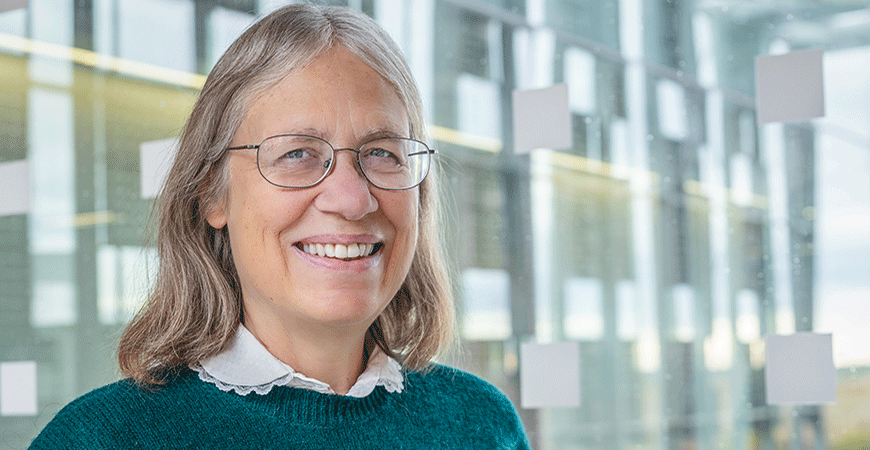
Engineering Professor Sarah Kurtz has been awarded the Reno Ferrero Family Chair in Electrical Engineering, making her the second woman to hold an endowed chair in the School of Engineering.
"I am truly honored to have been chosen for this chair, not only because of the donor and his achievements, that because this is going to greatly further the electrical engineering program at UC Merced," Kurtz said.
The endowed chair was established in 2006 through a generous donation from campus supporter Reno Ferrero, an Italian immigrant who came to Merced in 1920. Ferrero left high school before he graduated so he could work to help support his family. He purchased a small electrical business after WWII and grew it into an electrical contracting company with seven locations throughout central California, employing more than 200 electricians. Because he understood the importance of education, he became a generous supporter of student scholarships, the Merced College Technical Institute and UC Merced's electrical engineering program.
Kurtz said she is excited to meet with the Ferrero family to discuss her goals for the chair. Among her plans is to allocate fellowship funding to an electrical engineering graduate student focused on clean energy, because it aligns with the campus's commitment to sustainability and will enhance the amount of energy research conducted at UC Merced. Kurtz's own research encompasses the efficacy and viability of various renewable energy sources.
She also wants to use some of the money to help establish the new undergraduate electrical engineering major.
"Since coming to UC Merced, Professor Kurtz has shown significant leadership in developing research and academic programs, including the new B.S. degree program in electrical engineering, which is expected to receive its first freshman cohort in fall 2023," School of Engineering Dean Mark Matsumoto said. "Her appointment as the inaugural Reno Ferrero Family Endowed Chair in Electrical Engineering is testament to her outstanding track record in research and contributions to the electrical engineering discipline."
Kurtz particularly has her sights set on electrification — replacing technologies that use fossil fuels such as coal, oil and natural gas with technologies that use electricity as a source of energy. Electrification can potentially reduce carbon dioxide (CO₂) from industry, transportation and building emissions, which account for 65% of all U.S. greenhouse gas emissions, according to the organization Resources for the Future. Reducing emissions will help mitigate the impacts of climate change.
"If you think about what we need to do to make our energy systems sustainable, electrification is going to play a key role," Kurtz said. "It is a really powerful thing for us because the efficiency of an electric motor is so much greater than that of an internal combustion engine."
As the country trends toward renewable energy, electrical engineers are going to be in even higher demand than they are now. Kurtz' plans for the chair include the new bachelor's degree program, including new classes for undergraduate students; and the fellowship, which will allow graduate students to engage in impactful clean-energy research and develop meaningful career experience. She hopes the chair and the fellowship will also help entice new electrical engineering faculty to join the campus. She and other faculty already teach some electrical engineering classes and in the 2023 enrollment period, they will accept new students who are seeking degrees in electrical engineering.
"My hope is that this endowed chair puts me in a position to help develop that new degree program even faster," she said. The money from the endowment could also help fund exploratory research that could help attract new and larger grants.
Lorena Anderson

Senior Writer and Public Information Representative
Office: (209) 228-4406
Mobile: (209) 201-6255






